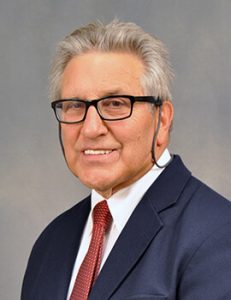
Professor Robert Eckel
ADA President of Medicine & Science Emeritus Professor Robert Eckel has called for the establishment of a new subspecialty of cardiometabolic medicine.
Speaking at the ADA Scientific Sessions in his presidential address, Professor Eckel challenged his audience as to who would look after a typical patient such as a 48-year-old woman with obesity and type 2 diabetes admitted for increasing chest pain.
He said the patient was diagnosed with non-STEMI and treated with a drug eluting stent and discharged on a cocktail of additional lipid-lowering, antihypertensive and antiplatelet medications. But her ongoing management was a moot point.
Who would manage her goals for HbA1c, lipids, blood pressure, and lifestyle issues including weight reduction, he asked.
“Who’s going to take care of this woman? Can the cardiologist assess and manage the metabolic aspects of her CVD risk including the potential serious adverse effects of these medications?
“And of course, the endocrinologist has limited ability to deal with recurrent angina, a cardiac rhythm disturbance or advancing HF if they occur.”
“The overlap of these metabolic disorders with CVD is a graded relationship, strong and contributes in a major way to reversing the decades long trend downward of reduced CVD mortality,” he said.
Professor Eckel and colleagues, including Dr Michael Blaha from John Hopkins, are already developing a training program that will provide clinicians with the ability to deliver more comprehensive care to the growing number of people with complex cardiometabolic disease.
The proposed three-year program will include preventive cardiology, metabolic aspects of endocrinology and metabolism, hepatology, nephrology, lifestyle and obesity medicine and be underpinned by research.
Professor Eckel, from the division of endocrinology, metabolism and diabetes and the division of cardiology at the University of Colorado, said the program would likely take 10-15 years to establish and initially grow out of existing fellowship training programs in cardiology and endocrinology and metabolism.
Read more in a mini-review published concurrently with #ADA2020 in The Journal of Clinical Endocrinology & Metabolism.